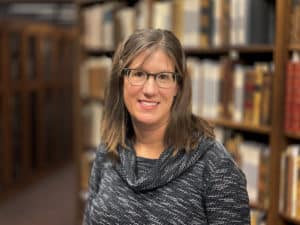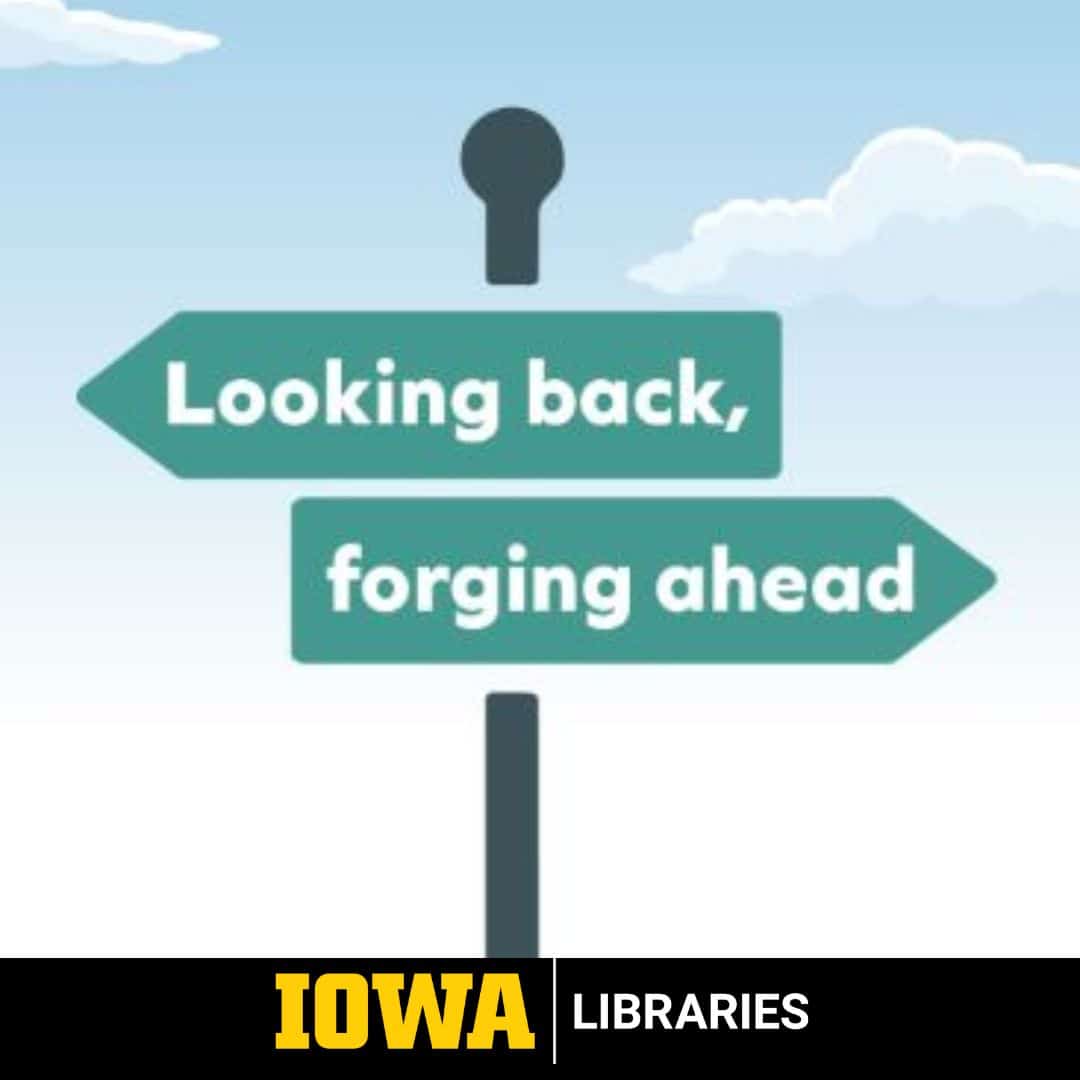The Medical Library Association (MLA) and the Special Libraries Association (SLA) held a joint annual conference in Detroit from May 16-19, 2023. Three librarians from the Hardin Library for Health Sciences gave lighting talks and presentations at the conference.

User Services Librarian
Lightning Talk: Authorship or Acknowledgement: A Complicated Question!
For librarians supporting systematic reviews, determining whether to request authorship, acknowledgment, or neither can be a conundrum. This talk presented an overview of the factors surrounding these decisions including a few case examples DeBerg’s experience.
Background: For librarians supporting systematic reviews, determining whether to request authorship, acknowledgment, or neither can be a conundrum. This talk will present an overview of the factors surrounding these decisions including a few case examples from my experience supporting reviews. The aim is to stimulate ongoing critical thought, discussion, and ideas to provide improved guidance. With the rise in the publication of systematic reviews, awareness of the need for librarian expertise has grown, supported by reputable organizations such as the Cochrane Collaboration. Recently, the Medical Library Association released an authorship statement to provide additional support for co-authorship in publication. There is potential for this statement, important as it is, to be misinterpreted as a standard of practice or a mandate.
Paper: Advocating for the value of health sciences librarians
Authors: Mark MacEachern, Janene Batten, Brian Conn, Jennifer DeBerg, HelenAnn Epstein, Mary Pat Harnegie, Terry Ann Jankowski, Ellen Justice, Liz Kellermeyer, Susan Lessick, Valerie Lookingbill, Andrea Lynch, Laura Menard, Tanisha Mills, Maggie Shawcross, Julia Stumpff, Jennifer Westrick, Douglas Varner, The Value Studies Working Group
Since 2016, the Evidence You Can Use To Communicate Library Value page on the Medical Library Association (MLA) website has highlighted studies that demonstrate the tremendous value health sciences librarians bring to their institutions and communities. It serves the profession as a freely accessible resource for library advocacy. This year the MLA/RTI (Research Training Institute) Value Studies Working Group was tasked with the first significant update to the page since it was originally published.
The goal of the project is to communicate the profession’s value through the selective use of the strongest evidence. The Working Group used several methods to identify the new value studies. They conducted database searches and hand searches of select journals, talked to domain experts, and checked references of key studies. Priority was given to studies published after the original work was done in 2016. After reviewing hundreds (maybe thousands) of studies, the Working Group found important new research that showcases librarians’ impact on clinical decisions, patient care, health profession education, evidence syntheses, scholarly research, and institutional bottom lines. The group also sought value studies in domains that were not represented on the original website, such as data management, patient safety, and hospital librarianship. As a collection, these studies show the impact of librarians to be significant and sweeping. This presentation covered the project’s goals, search methods, and challenges, while also summarizing the studies that are highlighted on the site.
Since 2016, the number of value studies in the profession has grown significantly, and a selective sample of these studies will be reflected on the updated website.

Curator, John Martin Rare Book Room
Paper: Waste Not, Want Not: Exposing the Secret Fragments of History in a Medical Rare Book Collection
Authors: Damien Ihrig, Elizabeth Stone, Eric Ensley
Ihrig also presented a public talk on this topic in Iowa City. Video
This paper details a project within a health sciences rare book collection embedded in an academic health sciences library to locate, describe, identify, digitize, and catalog manuscript/printer’s waste – manuscript or printed material recycled to make new books. This new information broadens the connections to non-medical/non-scientific areas of Western history and extends the collection’s usefulness to disciplines beyond those typically accessing history of medicine collections.
Using material from existing books to make new books is a well-established practice. These bits of books, referred to as waste, are found throughout rare book collections. Book makers were not picky about the waste they used. They used leaves from old manuscripts, test prints, usable pages from damaged books, and printed ephemera, among others, to support spines, make repairs, and cover books. And occasionally, the only existing versions of particular works are found as fragments in other books. Librarians at a health sciences rare book collection undertook an effort to locate, describe, identify, digitize, and catalog manuscript/printer’s waste in the collection. Phase 1 of the project identified books most likely to contain waste. The books were inspected for evidence of waste in Phase 2. Other curators/conservation staff will try to identify the hands and the type used and, if possible, the original work in Phase 3. The catalog will be updated in Phase 4. Digitization of the waste will take place during Phase 5. Future phases may include inspecting more books and utilizing imaging technologies.
Based on a cutoff date of 1700 and binding condition (e.g., we excluded modern bindings), 1,311 books were surveyed for waste. This maximized the likelihood of finding waste while providing a reasonable number of books to survey. 65 books contained evidence of waste, with 156 individual instances identified for verification and description. Preliminary images and metadata were recorded. Phase 3 is ongoing as the team works to verify the waste and identify the hand/type and the original works.

Clinical Education Librarian
Lightning Talk: Mental Health First Aid (MHFA): Why and How?
Because the COVID-19 Pandemic exacerbated behavioral health conditions and highlighted the need for more behavioral health advocacy/interventions, the workplace training program Mental Health First Aid (MHFA) may be of interest to health sciences libraries. MHFA training can help libraries educate staff, destigmatize mental illness, and provide de-escalation techniques to better meet their community’s needs. This talk provided a detailed description of what MHFA training is, how it can be implemented at your library, and the benefits of the training.
MHFA is a standardized curriculum that teaches lay people how to respond to mental health crises and provides background education regarding mental illnesses. MHFA is a natural fit for libraries since a large part of the training is devoted to teaching participants how to provide reliable mental health information, resources, and appropriate behavioral health treatment options. It is relevant and appropriate for all library staff, especially public-facing staff since it gives them skills to better cope with challenging public interactions.
University of Iowa Libraries staff will start MHFA training in fall 2023.
